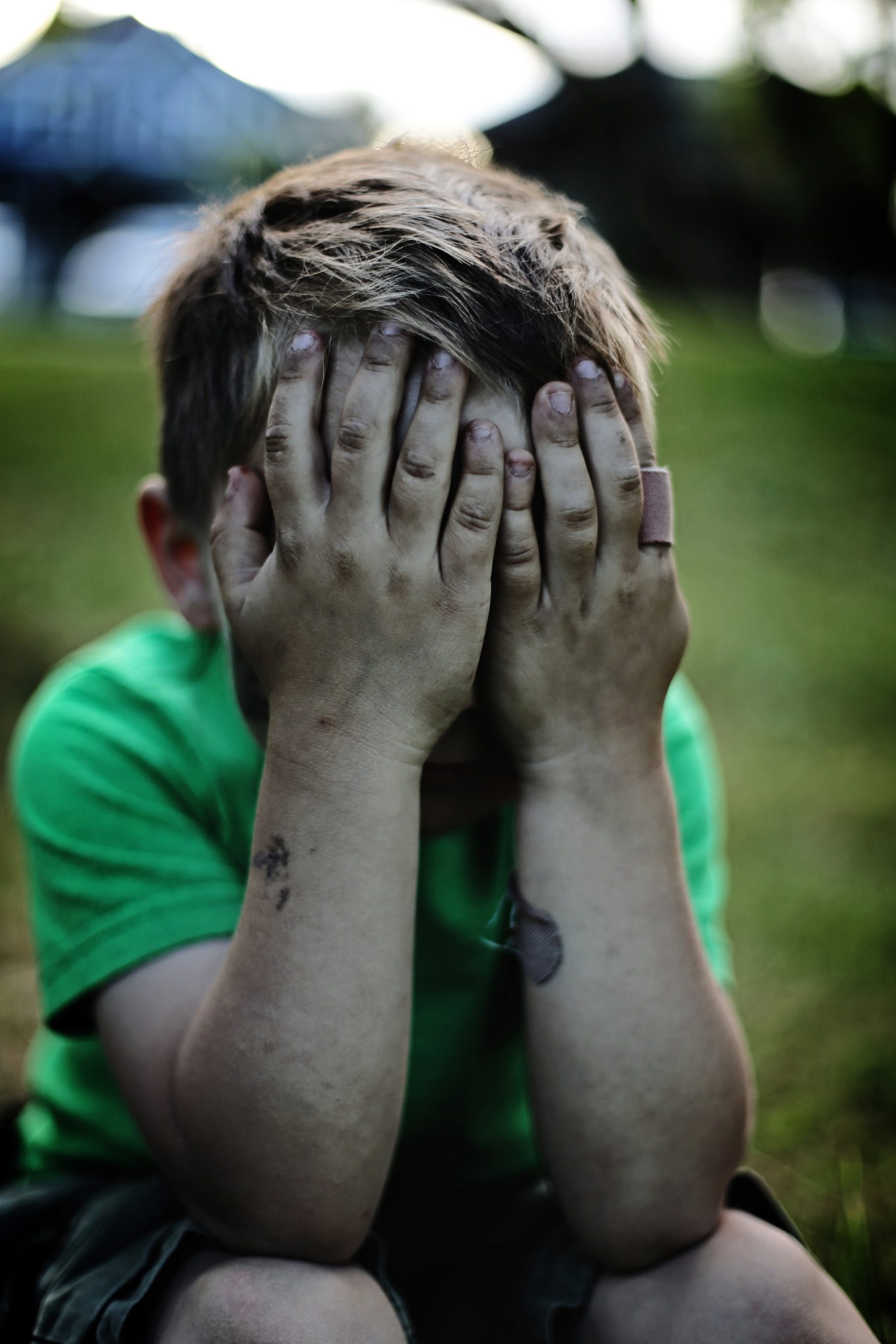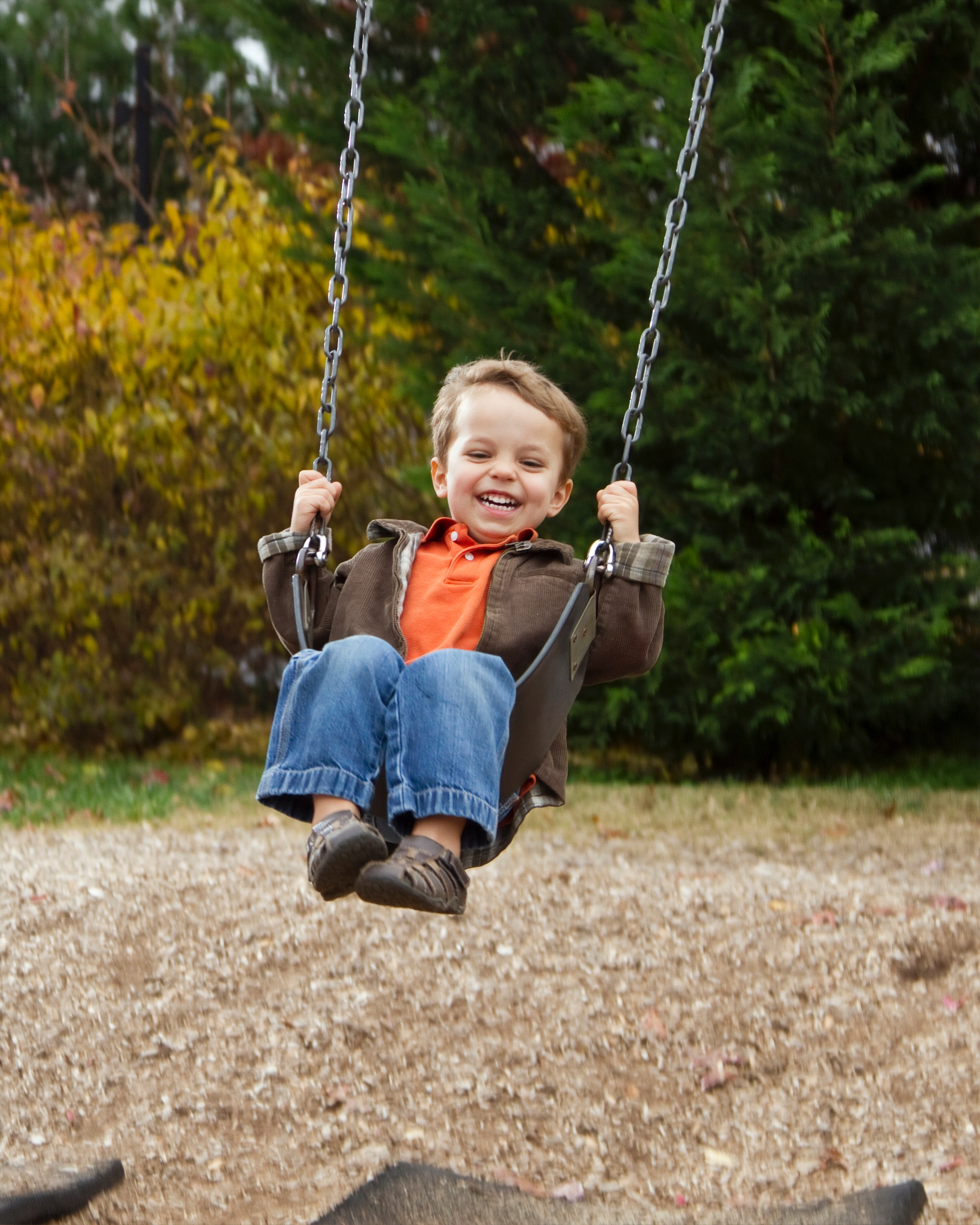Depression in children is more common than most people think, and it was once believed that children were too developmentally and emotionally immature to suffer from depression. According to the Centers for Disease Control and Prevention (2020), approximately 3.2%, or 1.9 million, of children and teens aged 3-17 years in the U.S. have been diagnosed with depression.
 Comorbidity, or having a simultaneous coexisting condition in addition to depression, is common among this age group. Common coexisting conditions include but are not limited to Attention Deficit Hyperactivity Disorder (ADHD), anxiety, and behavioral problems such as Oppositional Defiant Disorder (ODD) and Conduct Disorder (CD).
Comorbidity, or having a simultaneous coexisting condition in addition to depression, is common among this age group. Common coexisting conditions include but are not limited to Attention Deficit Hyperactivity Disorder (ADHD), anxiety, and behavioral problems such as Oppositional Defiant Disorder (ODD) and Conduct Disorder (CD).
But recognizing the signs of depression in children can be difficult because a child’s depression may look like normal fluctuating childhood moods. Also, children are typically not as developmentally adept at articulating thoughts and emotions to express what they are feeling.
This does not mean children do not experience feelings. On the contrary, they experience a wide array of complex emotions. The difference is they do not normally understand or know the words that are necessary to identify and articulate these feelings.
Children often express their emotions through play, acting out behaviors, body language, and facial expressions. Also, difficulty in identifying the signs of depression in children versus common childhood moods increases as children move through different developmental stages.
Children experience shifting moods just like adults. Normal mood changes can be caused by lack of sleep; normal exhaustion from school, sports, extracurricular activities, or illness; and normal physical growth and hormonal changes. Due to the typical mood changes that occur in childhood depression may be overlooked as just a bad mood.
Common Signs of Depression in Children
How can you determine whether your child is suffering from depression that may require therapy and not just a gloomy mood or an episode of sadness that will soon pass? Depression is a mood disorder that disrupts daily life and often has a longer duration compared to situational depression, which usually subsides when the situation improves.
Clinical depression will not go away on its own and requires treatment from a professional and sometimes medication. Common symptoms of depression include but are not limited to the following:
- Persistent sadness
- Changes in appetite (an increase or decrease)
 Changes in sleep patterns (an increase or decrease)
Changes in sleep patterns (an increase or decrease)- Prolonged decreased interest in normal activities
- Social withdrawal and isolation from friends and family
- Persistent acting out in anger or rage
- Increased or new irritability
- Feelings of hopelessness
- Poor performance at school
- Debilitating fatigue
- Frequent outbursts
- Increased sensitivity to criticism
- Increased insecurity or fearfulness
- Increased crying or persistent weepiness
- New destructive or odd behavior
- Difficulty concentrating
- Suicidal thoughts or attempts
- Physical illness or complaints with no resolution of symptoms with medical intervention
- Persistent negative thoughts
- Feelings of worthlessness
- Self-harm behavior
- Appears to be giving up or not trying in school or other activities
- Feelings of guilt
- Critical of self
- Quickly shifting between happiness and sadness for no apparent reason
Please note these symptoms are most likely going to be new behaviors you may not have noticed with your child in the past or they may be suddenly more exaggerated, increased, and persistent. Also, according to the Diagnostic and Statistical Manual of Mental Disorders Fifth Edition (DSM-V) when diagnosing children with a depressive disorder, persistent irritability may be considered as a symptom and must be present on most days.
Signs of depression in children often manifest in school, extracurricular activities, socially, and as physical symptoms/complaints. There is often a sudden change in grades. Your child may have been at the top of his or her class and may suddenly be falling behind, failing, forgetting assignments, projects, or missing more school than usual.
It is important to seek the medical intervention of a physician to rule out any physical illnesses that may be occurring. Be careful not to place judgment on or punish your child for being sick or missing school. Often, this is the only way a child shows signs that something is wrong, so it is important to take physical complaints seriously.
Types of Childhood Depressive Disorders
The three common types of childhood depressive disorders according to the DSM-V include:
 Disruptive Mood Disorder is characterized by severe and persistent irritability that is chronic and exhibited on almost a daily basis. Severe outbursts can occur verbally and/or physically and are often directed at people or objects. These outbursts are extreme reactions to the situation and out of proportion in intensity.
Disruptive Mood Disorder is characterized by severe and persistent irritability that is chronic and exhibited on almost a daily basis. Severe outbursts can occur verbally and/or physically and are often directed at people or objects. These outbursts are extreme reactions to the situation and out of proportion in intensity.
Outbursts are developmentally inappropriate and must occur frequently (three or more times per week) over at least one year in at least two settings (i.e., home and school). In children, the severe irritability will be chronic, consistent, and present between extreme outbursts. It is important to note that the onset of disruptive mood dysregulation disorder must be before the age of ten and diagnosis must not be made on children with a developmental age of fewer than six years or older than eighteen.
Major Depressive Disorder is characterized by a major depressive episode for at least two weeks with marked and persistent depressed mood, sadness, hopelessness, and sudden loss of interest in most activities and lasting most of the day every day in the same two-week period.
These symptoms typically occur suddenly and are a noticeable and marked shift from the child’s usual temperament, mood, and behavior. Other symptoms include significant unintentional weight loss, insomnia or excessive sleep, agitation, restlessness, lack of activity, fatigue, feelings of worthlessness or inappropriate guilt, inability to concentrate, and recurring thoughts of death.
To accurately diagnose a child with major depressive disorder it is important to rule out life stressors or events that may be contributing to a change in mood. A clinical professional will need to assess your child and determine whether the response to such events is normal and appropriate or if a major depressive episode is also present.
Persistent Depressive Disorder (Dysthymia) is defined as a depressed mood that occurs most days for at least one year for children and adolescents (DSM-V). In children and adolescents, a persistent irritable mood can be present for at least one year.
This diagnosis is a blend of chronic major depressive disorder and dysthymia and symptoms may include changes in appetite, sleep habits, energy levels, self-esteem, concentration, and decision-making abilities, and include increased feelings of hopelessness.
During the one-year period of the depressive episode, the child will never be without symptoms. It is also important to note that the symptoms of Persistent Depressive Disorder will cause marked distress and impairment in school, social, and familial areas of the child’s life.
Reasons for Depression
 There are many reasons a child may develop depression. It is important to remember that signs of depression in children vary based on age, developmental stage, and hormonal changes. Symptoms may also manifest differently based on genetics, social and familial factors, any recent or past traumas, family history of depression, or social difficulties.
There are many reasons a child may develop depression. It is important to remember that signs of depression in children vary based on age, developmental stage, and hormonal changes. Symptoms may also manifest differently based on genetics, social and familial factors, any recent or past traumas, family history of depression, or social difficulties.
Chronic relational stressors also increase the likelihood of childhood depression. Also, a decrease in serotonin in conjunction with stressful life events may contribute to depression in children. Serotonin is the main chemical responsible for balancing moods and emotions as well as assisting with bodily functions such as sleeping and eating. Serotonin is often referred to as the “happy hormone.”
Treating Depression in Children
Should depression be suspected, it is important to seek the help of a mental health professional to accurately assess your child’s symptoms and devise the most beneficial treatment plan. Christian counseling can provide a place of refuge for your child to receive Biblical truth and guidance along with evidence-based treatment modalities to increase knowledge and understanding of the diagnosis of depression while learning healthy coping skills.
While medications are often used to treat depression in children, a trained medical doctor is best equipped to prescribe and monitor medication. It is important that your child also receive therapy with a trained counselor.
A trained counselor at Seattle Christian Counseling can provide treatment modalities and techniques such as play therapy, Cognitive-Behavioral Therapy (CBT), and dialectical behavioral therapy (DBT) which are designed to help your child manage depression and potentially minimize recurring episodes in adulthood.
Family therapy may be necessary as well to address environmental stressors contributing to your child’s depression. Contact us for more information and to schedule an initial consultation. There is hope for your child and your family.
Thankfully, we have a good and gracious God who promises that “When the righteous cry for help, the Lord hears and delivers them out of all their troubles. The Lord is near to the brokenhearted and saves the crushed in spirit” (Psalm 34:17-18, ESV).
“Girl and Balloons”, Courtesy of Senjuti Kundu, Unsplash.com, CC0 License; “Girl and Sunflowers”, Courtesy of Rodolfo Sanches Carvalho, Unsplash.com, CC0 License; “Shame”, Courtesy of Ksenia Makagonova, Unsplash.com, CC0 License; “Boy on Swing”, Courtesy of National Cancer Institute, Unsplash.com, CC0 License





